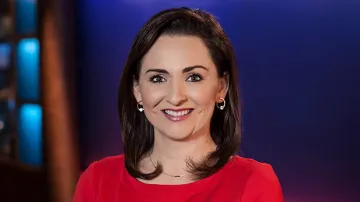
DISCUSSION ONE - IMMIGRATION
Wednesday, September 16, 2020
6:00pm - 7:30pm
Discussion will be 6:00 - 7:00pm, followed by 30 minutes of Q&A
Topics to be discussed may include:
- What is the effect of globalization on America's working class?
- What is the most productive relationship the U.S. can have with Mexico?
- How does immigration policy affect the predictability of global food systems?
Space is limited.
Immigration Discussion - Recorded September 17, 2020

Francisco Cantú
Francisco Cantú is a writer, translator, and the author of The Line Becomes a River, winner of the 2018 Los Angeles Times Book Prize and a finalist for the National Book Critics Circle Award in nonfiction. A former Fulbright fellow, he has been the recipient of a Pushcart Prize, a Whiting Award, and an Art for Justice fellowship. His writing and translations have been featured in The New Yorker, Best American Essays, Harper’s, and Guernica, as well as on This American Life. A lifelong resident of the Southwest, he now lives in Tucson, where he coordinates the Field Studies in Writing Program at the University of Arizona.

Jean Steve Mfuranzima
Jean Steve Mfuranzima has worked hard, struggled and sacrificed on his journey from his turbulent birth country of Burundi to his new home in Arizona. Yet, he still would rather people say “believe in others” instead of “believe in yourself.” Mfuranzima was born in 1987 and is the oldest of four children. Since his birth, Burundi has seen a string of presidents deposed, multiple genocides and violence driven by intense tribalism and politics.

Alex Nowrasteh
Alex Nowrasteh is the director of immigration studies at the Cato Institute’s Center for Global Liberty and Prosperity. His popular publications have appeared in the Wall Street Journal, USA Today, the Washington Post, and most other major publications in the United States. His peer‐reviewed academic publications have appeared in The World Bank Economic Review, the Journal of Economic Behavior and Organization, Economic Affairs, the Fletcher Security Review, the Journal of Bioeconomics, and Public Choice. He is a native of Southern California and received a BA in economics from George Mason University and a Master of Science in economic history from the London School of Economics.


